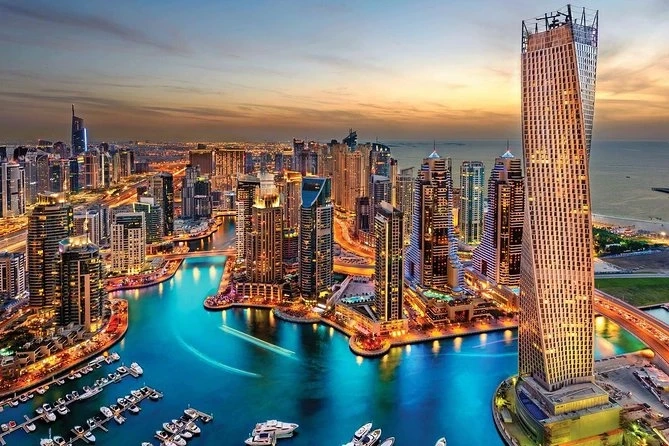A Growing Trend in the Middle East In recent years, the tourism industry has begun to cater to the needs of conservative families in the Gulf region, thus introducing a new trend called "Halal Tourism.” ۔
The trend was first introduced in Malaysia, which is an ideal destination for conservative Gulf families searching for tourist attractions and natural sites and adhering to Muslim teachings and traditions. Is also capable of
Soon, Turkey followed suit by introducing non-alcoholic hotels and separate swimming pools and spas for men and women. More countries are not trying to attract tourists from Muslim countries for economic gain and have thus begun to introduce a system with more religious beliefs for them.
The "halal tourism" industry now flies planes that do not serve alcohol or port products and announces prayer times and broadcasts religious classes and programs as entertainment programs.
A study has predicted that many carriers may adopt these policies to attract more tourists from the Gulf. Currently, international hotels serve "halal" food, slaughter according to Muslim teachings, and have pork-free products, employing more Arab assistants.
The concept of Islamic hotels is also booming, although earlier in the UAE, it is now gaining traction among other investors in the Gulf States. Many hotel groups plan to build hotels worldwide by 2013, starting in Egypt, followed by the United Arab Emirates, Malaysia, Europe, the United States, and thin.
Dubai is the first destination for halal tourism.
The Arab Tourism and Travel Forum, which is being held in Dubai this week, has polled about 35,000 Muslims of different nationalities on the concept of "halal tourism.”
Omar Ahmed.” CEO and founder of Sociable Earth said: "We have realized the need to understand the needs of Muslim travelers, and we are pleased to announce the most significant public opinion poll in which more than 35,000 Travelers can participate. This study has added to our knowledge of the halal travel industry.
Participants said that non-Muslim countries could attract more Muslim travelers by increasing the diversity of halal food in hotels by 61.3%, mosques by 61.1%, halal restaurants by 55.2%, and private pool villas by 14%.
According to the poll, Dubai is the most popular place with 30% of the vote, followed by Turkey with 16%, the Maldives with 12%, Malaysia with 9%, and Mauritius with 6%.
The critical factor of halal food
The most important factor influencing the choice of destinations is easy to access to halal food.
According to Amadeus MENA, a leading technology, meeting halal standards in all hospitality areas is crucial to providing the best experience for travelers. Still, it is also vital that families travel to Dubai independently. Create a package of attractions to encourage the destination of choice—supplier for the travel industry.
Halal Booking Guide for Halal Friendly Holidays in Dubai
Dubai is a jewel in the crown of the UAE. It has become trendy among tourists due to its excellent quality of accommodation, magnificent beaches, and unique shopping. In 2017, the UAE was named the world\'s best destination for Muslim tourists by the 2016-17 Global Islamic Economy Report. And who are we to disagree? Here are some reasons why we think halal travelers will love Dubai!
Halal Restaurants
It is never difficult to get halal meals in Dubai. Almost all of the cuisine offered in the city is halal. Even though most restaurants do not have Halal certification, Muslims own Indian, Lebanese, Egyptian, and other Middle Eastern eateries. Furthermore, the regulating organization in Dubai maintains high standards. So even if the restaurant does not have a certification to show its Halal status, the food is presumed to be Halal.
Restaurants with cuisines from all over the world are available to visitors. The most popular foods in Dubai include shawarma, hummus, and kebabs. Fast food is also readily available, and practically any shopping mall will offer a diverse assortment of every cuisine conceivable. Restaurants that provide pork and alcohol should be avoided. However, these are virtually invariably in high-end hotels or high-end areas. Suppose a restaurant chain is well-known in a non-Muslim nation. In that case, Muslim customers should double-check the Halal status of the food provided. For MORE Click Here
Reff: https://k12.instructure.com/courses/349862/pages/a-growing-middle-eastern-trend-halal-tourism
0



